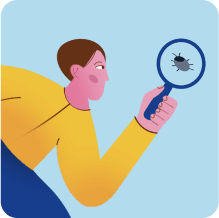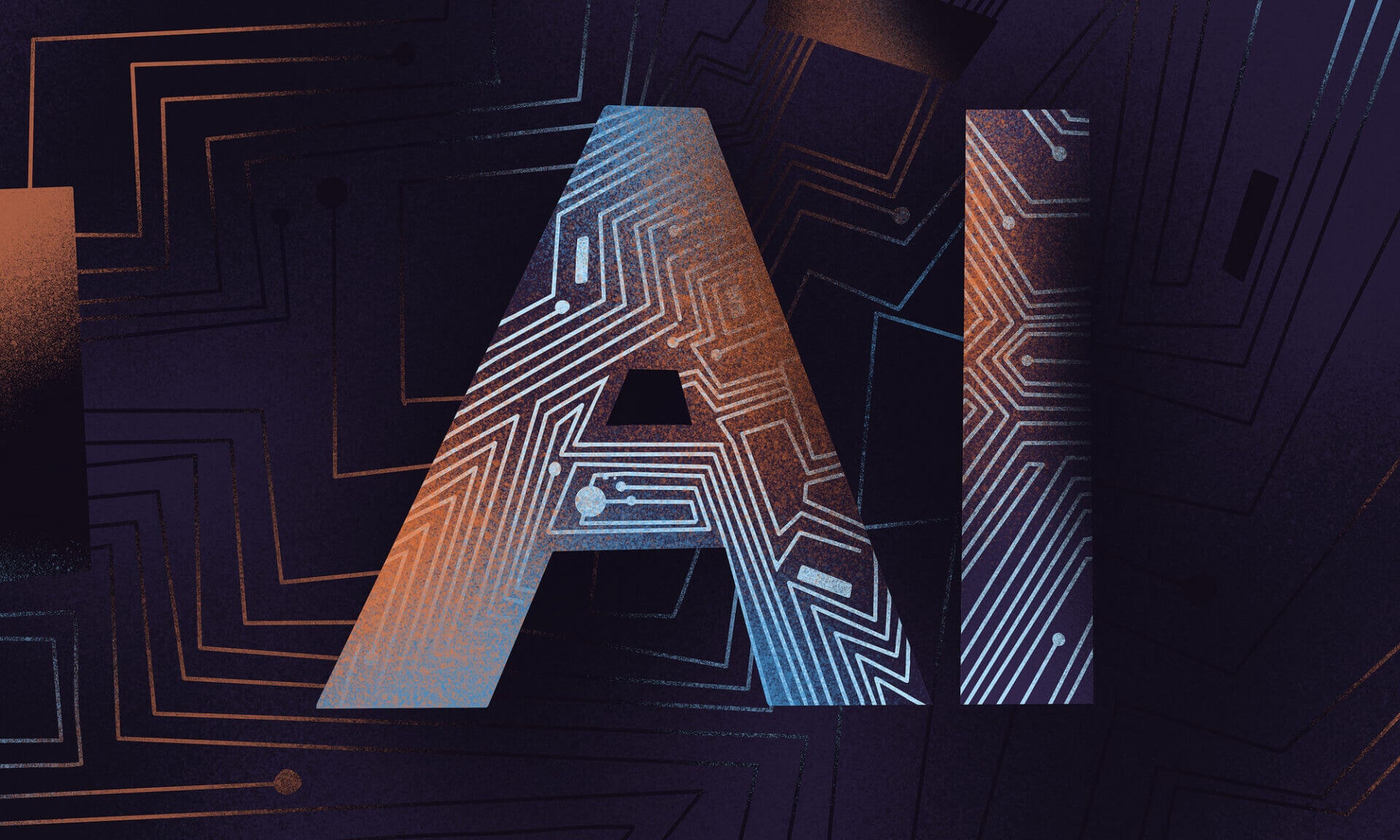Even though AI is considered continuing learning and expanding its intelligence and awareness through machine learning, it’s still pretty far from perfection. And anyway, AI in software testing will be an integral part of the process. But how, when, and why? Let’s look at how AI can help QA engineers work smarter and more efficiently.
Why should software testers use artificial intelligence?
QA professionals have always been inclined to using automation tools to aid them in their testing efforts. As a tool, AI can help them better understand the business problems they’re solving, find bugs faster and more consistently, improve the quality of their testing, and save time by automating menial tasks.
However, manual testing has limitations, and many repetitive tasks can’t be automated because they require human intelligence, supervision or judgement. As a result, companies are looking at AI to improve the quality of their software testing efforts and address some of these limitations.
- It can learn from past experiences and apply what it learns to similar situations;
- It can be used as a tool that helps with regression testing, which means it helps find bugs before they happen again;
- It can analyse data faster than humans ever could, resulting in more thorough testing of products or services;
- It can automate repetitive tasks like bug reporting or test case management.
The first thing that QA engineers use AI for is automated testing. This can be very helpful in ensuring that the software they are working on has been adequately tested and can be used by customers without any issues. When they use AI to automate their tests, it makes it easier for them to run these tests repeatedly. Which can help ensure that they find any bugs quickly before they get out into the world where they could cause problems for customers or even worse damage.
Another way that QA engineers use AI is by using machine learning models to help them identify problems with the software being tested. Machine learning models can analyse data from past tests as well as other similar programs. So that they can identify patterns within those programs, which could indicate potential problems down the road when users start using them in real-life situations outside of controlled environments.
And what if we told you about a solution that transforms all your testing efforts with AI capabilities? Introducing aqua cloud – a comprehensive test management solution that ensures 100% visibility, test coverage and seamless automation management through robust integrations with your existing tools. These include Jira, Ranorex, Jenkins, UnixShell, and many more. With aqua, you will easily translate your ideas into comprehensive documents within seconds, simply by speaking or providing a few tips to our AI Copilot. You can auto-create entire test cases from requirements in under 2 minutes, generate test data, and expand your user specifications, reducing manual input by 97%. You’ll receive validation and inspiration from our QA-tuned chatbot, which goes beyond ChatGPT. aqua offers best-in-class security and scalability, ensuring that your testing processes are faster, structured and innovative, ultimately taking away the pain of testing.
Superpower your QA with robust AI-powered solution
When to use AI in testing?
Let’s start here with another question that probably arises right after you are done with the first part of the article — what is the difference between automation and AI in QA testing? Let’s find out before you decide to prepare the QA team for the test automation without knowing if you actually need it.
So, it’s definitely not about using an automation test tool. You still need a human intellect to incorporate and maintain all creative aspects such as business strategies, evaluating personal progress, and correcting workflow concerning your employee’s affairs. And AI possesses the biggest value in leaving time for you to deal with this “creativity”. It removes the burden of monotonous and redundant actions from developers and testers.
As it is now, not all automation testing tools can carry out a significant stack of tests and process results. Additionally, the launching of tests is still under human supervision as automation tools need to know what tests to start or they run all at once.
But with an AI bot, it would be possible to review the current statuses of your tests, recent changes in development and code coverage changes, and just then decide on what tests are necessary to start.
AI techniques applied in QA can speed up SLDT ten times faster. For example, it helps with warnings and false positives.
Automated testing is cool, but it still can bring an enormous amount of false positives about events that are not actual bugs or multiple warnings that usually don’t happen when manually testing. Such a thing “kills” development and QA teams as they have to repeatedly review an existing code to eliminate possible problems. Imagine their frustration when they find out that it was a false positive?!
What can AI do for them? The solution can be creating a classifier based on AI. And here is the literate quotation of Igor Kirilenko, Parasoft’s VP of Development.
"This classifier is based on results from previous classifications of static analysis findings in the context of both historical suppression of irrelevant warnings and prior prioritisation of meaningful findings to fix inside the codebase."
Another example is integration related.
UI is one of the pillars for creating high-conversion websites. And all developers are pursuing automated testing of UI to simplify and speed up this process. And for this purpose, they usually prefer using the Selenium framework. However, Selenium could be better. It still runs some issues with testing maintainability and stability. To avoid this problem, developers can incorporate AI and ML as self-healing methods at runtime to address troubles associated with UI test execution. Running tests captures the important information about UI imperfections and finds the solution from a historical perspective.
Key benefits of using AI in testing for TOP QA engineers
AI can be a great boon to your QA team, and it’s not just hype. Here are the top 3 ways AI can make your QA process better:
Test consistency
The presence of artificial intelligence can level any kind of disagreement in the team, as well as prevent testers from burning out during the same type of testing.
Imagine that you are maintaining a huge project with hundreds of thousands of code lines and a large front end and back end. The number of tests can simply “hurt the psyche” of any professional tester — in principle, they can already imagine how much monotonous and uninteresting work they will have to cope with.
The use of AI in these types of projects can not only accelerate goal achievement but also reduce burnout factors and anxiety due to tight deadlines and overwhelming workloads and eliminate contradictions in the team.
Better defect tracking
The main advantage of AI in defect detection is that AI can analyse errors. That is, at the end of testing, we can get a “description of the alleged offender”.
For developers, this is important because it allows you to discover other vulnerabilities in the product that may contain similar problems and get rid of them immediately.
However, one can go further and use AI to fix these bugs without the explicit presence of developers in this process.
Wider test coverage
AI can push the test coverage of a product very far forward, the scope of which cannot be provided by either automated or manual testing. Because AI can view the necessary information and internal states, it can decide where additional testing needs to be done.
Future of AI Software Testing
The future of AI in quality assurance and its impact on software testing is incredibly promising. AI is increasingly becoming a game-changer in QA, enabling QA engineers to enhance their testing processes, efficiency, and accuracy. Here’s a glimpse of what the future might hold:
- AI-Driven Test Automation: AI is revolutionising test automation by enabling the creation of smarter, self-healing test scripts. AI algorithms can analyse application changes, automatically adjust test scripts, and predict potential failure points, reducing maintenance efforts and increasing the robustness of automated testing.
- Intelligent Test Case Generation: AI can assist in generating test cases by analysing requirements, user stories, and even historical data. This predictive capability helps create comprehensive test scenarios covering various potential issues.
- Predictive Analytics in Defect Prevention: AI-powered analytics can predict potential defects by analysing patterns from historical data, code repositories, and testing outcomes. This proactive approach allows QA engineers to focus on critical areas and mitigate issues before they surface.
- AI-Driven Test Execution and Analysis: AI can aid in the execution and analysis of tests by detecting anomalies, patterns, and correlations within test results. This speeds up the identification of issues and provides deeper insights into the root causes of problems.
- Intelligent Test Environments and Data Management: AI can optimise test environments by analysing usage patterns and dynamically provisioning resources as needed. It can also assist in generating and managing test data, ensuring that test environments simulate real-world scenarios accurately.
- AI-Enabled Defect Reporting: AI-powered tools can automatically create detailed bug reports from recorded videos. This means extracting key info like problem descriptions, steps taken, expected outcomes, and other data collected during the recording. It aims to improve bug reporting by adding more helpful details and smoothing the fixing process.
- AI-Powered Continuous Testing: Integrating AI into continuous testing pipelines can enable real-time analysis of software performance, security, and user experience. This facilitates quicker feedback loops and ensures faster delivery of high-quality software.
Artificial intelligence for QA engineers will offer tools that enhance their capabilities, allowing them to focus more on critical thinking, exploratory testing, and strategic decision-making rather than repetitive, manual tasks.
And this future is in fact, already here. How? Bringing aqua into the conversation – an AI-powered software test management system already has the features mentioned above. With aqua, you can automate most of your testing process, especially test case creation and requirements management. You can create entire test cases with a few words and clicks, and say a word to complete a requirement. You’ll be able to utilise AI to polish your existing items and artefacts, generate test data, get suggestions and much more. With Capture integration, you’ll also be able to record all your steps throughout the process seamlessly and have 100% visual and informative bug reports. The future of AI is at your fingertips, will you use it?
Save 73% of hours, resources, money with a modern AI-powered test management tool
Instead of a conclusion
It is probably too obvious to write a conclusion about the usability of AI for QA engineers. Instead of this, we decided to ask AI itself what are the benefits of incorporating it into your work process. And, telling the truth, we were pretty surprised. This is what AI said:
“You’ll have more time to spend with friends and family. No longer will your work days be filled with endless document reviews and bug reports — now they’ll be filled with a happy hour with friends, spending quality time with loved ones, and whatever else makes you happy!
You can sleep at night knowing that your job is secure. As long as humans on this planet want things done right (and done right now), there will always be a place for QA engineers .”
Are you sure that AI doesn’t have a soul?!






